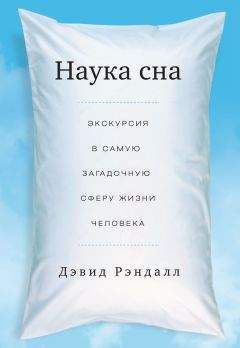Mautner, B. “Freud’s Irma Dream: A Psychoanalytic Interpretation.” International Journal of Psychoanalysis (February 1991).
Murphy, Kate. “Take a Look inside My Dream.” New York Times, July 9, 2010.
Nielsen, T. A., D. Kuiken, G. Alain, P. Stenstrom, and R. A. Powell. “Immediate and Delayed Incorporations of Events into Dreams: Further Replication and Implications for Dream Function.” Journal of Sleep Research, vol. 13, no. 4 (December 2004).
Pick, Daniel, and Lyndal Roper, eds. Dreams and History: The Interpretation of Dreams from Ancient Greece to Modern Psychoanalysis. New York: Brunner-Routledge, 2004.
Reed, Charles F., Irving E. Alexander, and Silvan S. Tomkins, eds. Psychopathology: A Source Book. Boston: Harvard University Press, 1958.
Rock, Andrea. The Mind at Night: The New Science of How and Why We Dream. New York: Basic Books, 2004.
Callaway, Ewen. “Dreams of Doom Help Gamers Learn: The Dreams of Video Game Players Suggest That Nocturnal Visions Have a Practical Role: Helping Us to Learn New Skills.” New Scientist, vol. 15 (November 2009).
Dement, William C. Some Must Watch while Some Must Sleep. San Francisco: San Francisco Book Company, 1976.
Durrant, S. J., C. Taylor, S. Cairney, and P. A. Lewis. “SleepDependent Consolidation of Statistical Learning.” Neuropsychologia, vol. 49 (April 2011).
Galenson, David. “Innovators: Songwriters.” NBER Working Paper no. 15511. Cambridge, MA: National Bureau of Economic Research, November 2009.
Hoffman, Jascha. “Napping Gets a Nod at the Workplace.” BusinessWeek, August 26, 2010.
Horne, Jim. Sleepfaring: A Journey through the Science of Sleep. Oxford: Oxford University Press, 2006.
Louie, K., and M. A. Wilson. “Temporally Structured REM Sleep Replay of Awake Hippocampal Ensemble Activity.” Neuron, vol. 29 (January 2001).
Mednick, Sarnoff A. “The Associative Basis of the Creative Process.” Psychological Review, vol. 69, no. 3 (1962).
Mednick, S. C., S. P. A. Drummond, G. M. Boynton, E. Awh, and J. Serences. “Sleep-Dependent Learning and Practice-Dependent Deterioration on an Orientation Discrimination Task.” Behavioral Neuroscience, vol. 122 (April 2008).
Mednick, S. C., J. Kanady, D. Cai, and S. P. A. Drummond. “Comparing the Benefits of Caffeine, Naps and Placebo on Verbal, Motor, and Perceptual Memory.” Behavioral Brain Research, vol. 3 (November 2008).
Mollicone, D. J., H. Van Dongen, and D. F. Dinges. “Optimizing Sleep/Wake Schedules in Space: Sleep during Chronic Nocturnal Sleep Restriction with and without Diurnal Naps.” Acta Astronautica, vol. 60 (February — April 2007).
Moorcroft, William H. Sleep, Dreaming and Sleep Disorders: An Introduction. Laham, MD: University Press of America, 1993.
Pierre, Maquet, and Ruby Perrine. “Insight and the Sleep Committee.” Nature, vol. 427 (January 22, 2004).
Povich, Shirley. “The 1964 U.S. Open: Victory in the Heat of Battle.” Washington Post, June 11, 1997.
Stickgold, Robert. “A Few Minutes of Shut-Eye at Work Could Be Good for Business.” Harvard Business Review, vol. 87, no. 10 (2009).
Stickgold, Robert, April Malia, Denise Maguire, David Roddenberry, and Margaret O’Connor. “Replaying the Game: Hypnagogic Images in Normals and Amnesics.” Science, vol. 13 (October 2000).
Tucker, Matthew A., and William Fishbein. “Enhancement of Declarative Memory Performance following a Daytime Nap Is Contingent on Strength of Initial Task Acquisition.” Sleep, Vol. 31 (February 2008).
Tupper, Fred. “Lema Takes British Open Golf with 279, Beating Nicklaus by Five Strokes.” New York Times, July 11, 1964.
Wagner, U., S. Gais, H. Haider, R. Verleger, and J. Born. “Sleep Inspires Insight.” Nature, vol. 427 (January 2, 2004).
Walker, Matthew P. “Sleep to Remember.” American Scientist, vol. 94, no. 4 (July/August 2006).
Walker, Matthew P., Tiffany Brakefield, Alexandra Morgan, J. Allan Hobson, and Robert Stickgold. “Practice with Sleep Makes Perfect: Sleep-Dependent Motor Skill Learning.” Neuron, vol. 35 (July 3, 2002).
Wilson, M. A. “Hippocampal Memory Formation, Plasticity, and the Role of Sleep.” Neurobiology of Learning and Memory, vol. 78 (November 2002).
Armstrong, Benjamin. “Are We Driving the Ship Drunk?” Proceedings (U.S. Naval Institute), vol. 136, no. 2 (February 2010).
Balkin, Thomas. “Managing Sleep and Alertness to Sustain Performance in the Operational Environment.” Presentation notes, NATO, Nevilly-sur-Seine, France, 2005.
Berthoz, Alian. Emotion and Reason: The Cognitive Neuroscience of Decision Making. Oxford: Oxford University Press, 2003.
Committee on Military Nutrition Research, Food and Nutrition Board, Institute of Medicine. Caffeine for the Sustainment of Mental Task Performance: Formulations for Military Operations. Washington, D.C.: National Academy Press, 2001.
Driskell, James E., and Brian Mullen. “The Efficacy of Naps as a Fatigue Countermeasure: A Meta-Analytic Integration” Human Factors, vol. 47, no. 2 (Summer 2005).
Halbfinger, David M. “Hearing Starts in Bombing Error That Killed 4.” New York Times, January 15, 2003.
Harrison, Yvonne, and James Horne. “The Impact of Sleep Deprivation on Decision Making: A Review.” Journal of Experimental Psychology: Applied, vol. 6, no. 3 (2000).
“Information Paper: DARPA’s Preventing Sleep Deprivation Program.” Published on DARPA website (www.dtic.mil/cgi-bin/GetTRD?AD=ADA521349&Location=U2&doc=GetTRD.doc.pdf), October 2007.
Jaffe, Greg. “Marching Orders: To Keep Recruits, Boot Camp Gets a Gentle Revamp; Army Offers More Support, Sleep, Second Helpings; Drill Sergeants’ Worries; ‘It Would Look So Much Nicer.’ ” Wall Street Journal, February 15, 2006.
Kennedy, Kelly. “Sleep Starved.” Army Times, May 19, 2006.
Khatchadourian, Raffi. “The Kill Company.” New Yorker, July 6, 2009.
Killgore, William D., Arthur Estrada, Tiffany Rouse, Robert M. Wildzunas, and Thomas J. Balkin. Sleep and Performance Measures in Soldiers Undergoing Military Relevant Training. Fort Rucker, AL: U.S. Army Aeromedical Research Laboratory, Warfighter Performance and Health Division, June 2009.
Killgore, William D. S., Sharon A. McBride, Desiree B. Killgore, and Thomas J. Balkin. “The Effects of Caffeine, Dextroamphetamine, and Modafinil on Humor Appreciation During Sleep Deprivation.” Sleep, vol. 29 (June 2006).
Kushida, Clete A. Sleep Deprivation: Basic Science, Physiology and Behavior. New York: Marcel Dekker, 2005.
Laurence, Charles. “Ready for War in 2005: The Soldier Who Never Sleeps.” Daily Telegraph, January 5, 2003.
Lehrer, Jonah. How We Decide. New York: Houghton Mifflin Harcourt, 2009. Martz, Ron. “War Story: GI Joe.” Atlanta Magazine, March 2008.
Mestrovic, Stjepan. The Good Soldier on Trial: A Sociological Study of Misconduct by the US Military Pertaining to Operation Iron Triangle, Iraq. New York: Algora, 2009.
Miller, N. L., and R. Firehammer. “Avoiding a Second Hollow Force: The Case for Including Crew Endurance Factors in the Afloat Staffing Policies of the U.S. Navy.” Naval Engineers Journal, vol. 119, no. 1 (2007).
Miller, N. L., P. Matsangas, and L. G. Shattuck. “Fatigue and Its Effect on Performance in Military Environments,” in P. A. Hancock and J. L. Szalma, eds., Performance under Stress. Burlington, VT: Ashgate, 2007.
Miller, Nita Lewis, and Lt. John Nguyen. “Working the Nightshift on the USS John C. Stennis: Implications for Enhancing Warfighter Effectiveness.” Conference paper, Human Systems Integration Symposium, Vienna, VA, May 1, 2003.
Robson, Seth. “In Video, Leahy Tells of Shooting Iraqi Detainees.” Stars and Stripes, February 20, 2009.
Robson, Seth. “Report: Troops Need More Sleep.” Stars and Stripes, March 17, 2009.
Scott, William B. “Crew Fatigue Emerging as Critical Safety Issue.” Aviation Week and Space Technology, April 8, 1996.
Shanker, Thom, with Mary Duenwald. “ ‘Go Pills’ Center-Stage at U.S. Pilots’ Hearing: Effect of Amphetamine Use Is Murky.” International Herald Tribune, January 20, 2003.
Shay, Jonathan. “Ethical Standing for Commander Self-Care: The Need for Sleep,” Parameters (U.S. Army War College), vol. 28, no. 2 (Summer 1998).
Smith, Elliot Blair. “Fatigue a Formidable Enemy within the Ranks: Sleep Deprivation Taking Toll on Troops, So Weary Warriors Catch Catnaps When and Where They Can.” USA Today, March 28, 2003.
Squeo, Anne Marie, and Nicholas Kulish. “A Growing Threat to Troops in Iraq: Sleep Deprivation.” Wall Street Journal, March 27, 2003.
Von Zielbauer, Paul. “Court Papers Describe Killings of Prisoners by Three U.S. Troops in Iraq.” International Herald Tribune, August 28, 2008.
Von Zielbauer, Paul. “U.S. Soldiers Executed Iraqis, Statements Say.” New York Times, August 26, 2008.
Wesensten, Nancy J., Gregory Belenky, and Thomas J. Balkin. “Sleep Loss: Implications for Operational Effectiveness and Current Solutions,” in Thomas W. Britt, Carl A. Castro, and Amy B. Adler, eds., Military Life: The Psychology of Serving in Peace and Combat, vol. 1. Westport, CT: Praeger Security International, 2005.
Bachelder, Vance, and Michel A. Cramer Bornemann. “New Research in Sleep-Disorder Breathing.” RT: For Decision Makers in Respiratory Care (June 2003).
Callwood, June. The Sleepwalker. Toronto: Lester and Orpen Dennys, 1990. Cartwright, Rosalind. “Sleepwalking Violence: A Sleep Disorder, a Legal Dilemma, and a Psychological Challenge.” American Journal of Psychiatry, vol. 161, no. 7 (July 2004).
Cramer Bornemann, Michel A., Mark W. Mahowald, and Carlos H. Schenck. “Parasomnias: Clinical Features and Forensic Implications.” Chest, vol. 130, no. 2 (August 2006).
Denno, Deborah W. “Crime and Consciousness: Science and Involuntary Acts.” Minnesota Law Review, vol. 87 (2002).
Denno, Deborah W. “Criminal Law in a Post-Freudian World.” University of Illinois Law Review, vol. 601 (2005).
Denno, Deborah W. “A Mind to Blame: New Views on Involuntary Acts.” Behavioral Sciences and the Law, vol. 21 (2003).
Krasnowski, Matt. “Sleepwalking Defense Is Called ‘Sophistry’; Killer Gets 26 Years.” San Diego Union Tribune, August 20, 2004.
Lauerma, Hannu. “Fear of Suicide during Sleepwalking.” Psychiatry, vol. 59, no. 2 (Summer 1996).
Mahowald, M. W., C. H. Schenck, M. Goldner, V. Bachelder, and M. Cramer-Bornemann. “Parasomnia Pseudo-Suicide.” Journal of Forensic Sciences, vol. 48, no. 5 (2003).
Mahowald, Mark W., and Carlos H. Schenck. “Parasomnias: Sleepwalking and the Law.” Sleep Medicine Reviews, vol. 4, no. 4 (2000).
“Man Acquitted of Sleepwalking Murder Running for School Trustee in Durham.” CityNews.ca. October 27, 2006.
McLeod, Keith. “A Decent Man and Devoted Husband; Dad Who Strangled Wife in Sleep Is Cleared.” Daily Record (Glasgow), November 21, 2009.
Milliet, Nicolaa, and Wolfgang Ummenhofer. “Somnambulism and Trauma: Case Report and Short Review of the Literature.” Journal of Trauma: Injury, Infection, and Critical Care, vol. 47 (August 1999).
Morse, Stephen J., and Morris B. Hoffman. “The Uneasy Entente between Legal Insanity and Mens Rea: Beyond Clark V. Arizona.” Journal of Criminal Law and Criminology, vol. 97, no. 4 (Summer 2007).
Schenck, C. H., I. Arnulf, and M. W. Mahowald. “Sleep and Sex: What Can Go Wrong? A Review of the Literature on Sleep Related Disorders and Abnormal Sexual Behaviors and Experiences.” Sleep, vol. 30 (June 2007).
Schenck, Carlos H., Samuel Adams Lee, Michel A. Cramer Bornemann, and Mark W. Mahowald. “Potentially Lethal Behaviors Associated with Rapid Eye Movement Sleep Behavior Disorder: Review of the Literature and Forensic Implications.” Journal of Forensic Sciences, vol. 54, no. 6 (2008).
Sleep Runners: The Stories behind Everyday Parasomnias. Brian L. Dehler, dir. Documentary. Slow-Wave Films, 2011.
Stryker, Jeff. “Sleepstabbing: The Strange Science of Sleep Behavior and One Verdict: Guilty!” Salon, July 8, 1999.
Tighe, Janet A., and Francis Wharton. “The Nineteenth-Century Insanity Defense: The Origins of a Reform Tradition.” American Journal of Legal History, vol. 27, no. 3 (July 1983).
Vienneau, David. “Sleepwalk Murder Acquittal Upheld by Supreme Court.” Toronto Star, August 27, 1992.
Bronson, Po. “Snooze or Lose. “ New York, October 7, 2007.
Brown, Frederick M., Evan E. Neft, and Cynthia M. LaJambe. “Collegiate Rowing Crew Performance Varies by Morningness-Eveningness.” Journal of Strength and Conditioning Research, vol. 22, no. 6 (November 2008).
Corbett Dooren, Jennifer. “Later Start to School Boosts Teens’ Health.” Wall Street Journal, July 6, 2010.
Dahl, R. E., and A. G. Harvey. “Sleep in Children and Adolescents with Behavioral and Emotional Disorders.” Sleep Medicine Clinics, vol. 2 (September 2007).
Doskoch, Peter. “Putting Time on Your Side.” Psychology Today, vol. 30, no. 2 (March/April 1997).
Frias, Carlos. “Baseball and Amphetamines.” Palm Beach Post, April 2, 2006.
Gangwisch, James E., Lindsay A. Babiss, Dolore Malaspina, J. Blake Turner, Gary K. Zammit, and Kelly Posner. “Earlier Parental Set Bedtimes as a Protective Factor against Depression and Suicidal Ideation.” Sleep, vol. 33 (January 2010).
Mah, Cheri. “Extended Sleep and the Effects on Mood and Athletic Performance in Collegiate Swimmers.” Presented at the 2008 annual meeting of the Associated Professional Sleep Societies, Baltimore, MD, June 9, 2008.
O’Brien, Louise M., Neali H. Lucas, Barbara T. Felt, Timothy F. Hoban, Deborah L. Ruzicka, Ruth Jordan, Kenneth Guire, and Ronald D. Chervin. “Aggressive Behavior, Bullying, Snoring, and Sleepiness in Schoolchildren.” Sleep Medicine, Vol. 12, no. 7 (August 2011).
Postolache, T. T., T. M. Hung, R. N. Rosenthal, J. J. Soriano, F. Montes, and J. W. Stiller. “Sports Chronobiology Consultation: From the Lab to the Arena.” Clinical Sports Medicine, vol. 24 (April 2005).
Postolache, Teodor T., and Dan A. Orenc. “Circadian Phase Shifting, Alerting, and Antidepressant Effects of Bright Light Treatment.” Clinical Sports Medicine, vol. 24 (April 2005).
Reilly, Thomas. “The Body Clock and Athletic Performance.” Biological Rhythm Research, vol. 40, no. 1 (February 2009).
Rosbash, Michael. “A Biological Clock.” Daedalus, vol. 132, no. 2 (Spring 2003).
Samuels, Charles. “Sleep, Recovery, and Performance: The New Frontier in High-Performance Athletics.” Neurological Clinics, vol. 26 (February 2008).
Smith, Roger S., Christian Guilleminault, and Bradley Efron. “Sports, Sleep and Circadian Rhythms: Circadian Rhythms and Enhanced Athletic Performance in the National Football League.” Sleep, vol. 20 (May 1997).





